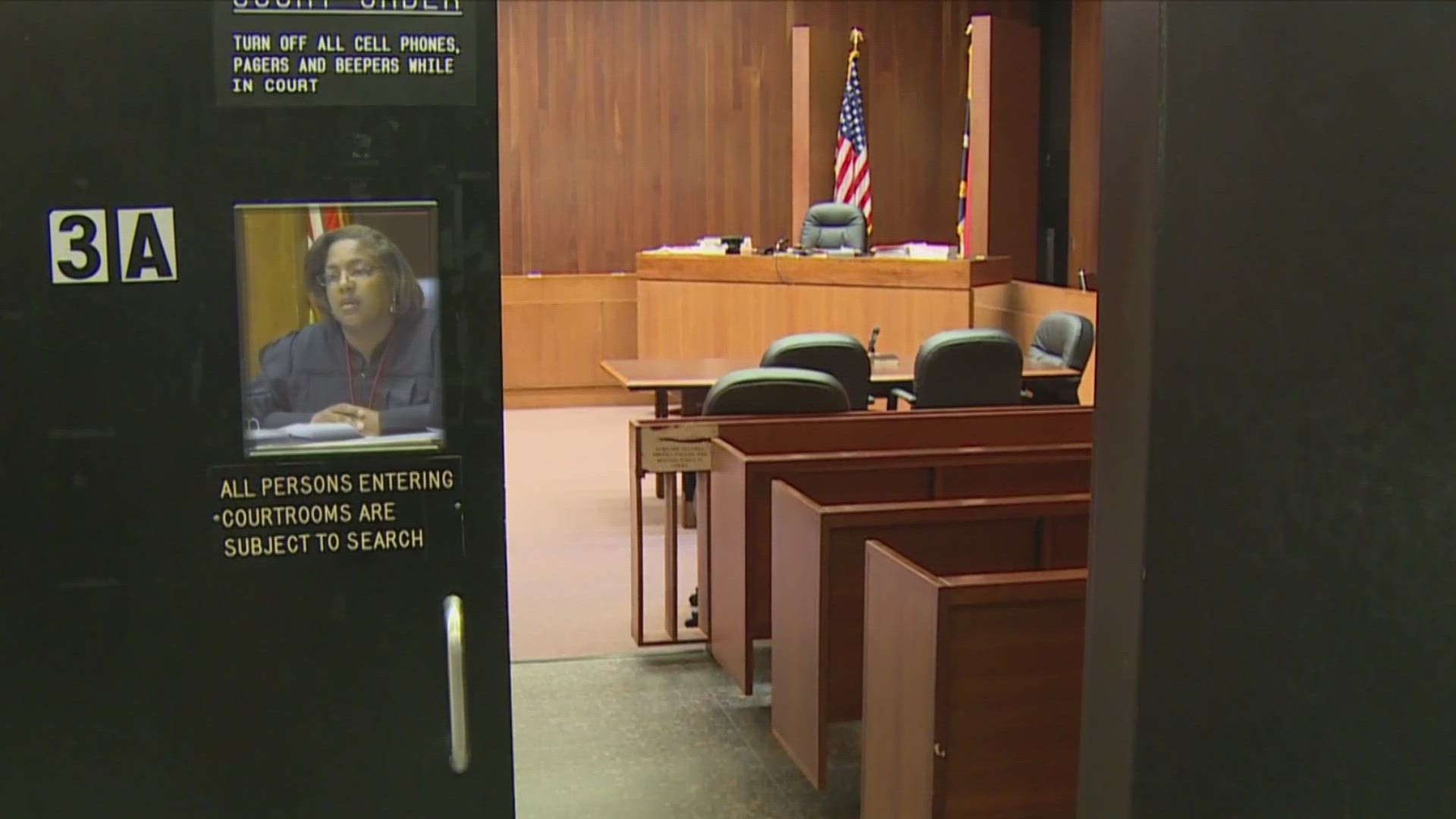GUILFORD COUNTY, N.C. — The Supreme Court of North Carolina suspended a Guilford County judge without pay for 120 days after hearing allegations that she used her authority to try to get her son's bond lowered in Wake County.
Angela Foster is a judge of the General Court of Justice, District Court Division, Judicial District 18. On Friday, North Carolina's highest court suspended her at the recommendation by the Judicial Standards Commission.
According to the Commission's findings, Foster called the Wake County Magistrate's Office on March 3, 2022, and used her judicial title to ask about the custody status of her son without revealing her relationship. The magistrate on duty confirmed Alexander Pinnix was being held in Wake County jail under a $1,000 secured bond for charges of resisting a public officer and misdemeanor breaking or entering.
Court documents state Foster "began speaking loudly at Magistrate May and requested that she change Mr. Pinnix’s bond to a written promise to appear.
The magistrate on the call explained she did not feel comfortable changing the bond of another magistrate. Foster said Pinnix had court in Guilford County the following morning for a child custody case and needed to be present or the court would take away his children. However, after investigating further, court documents showed Pinnix did not have a Guilford County child custody case, or any other case, pending.
Then on November 7, 2022, Foster was accused of demanding that an assistant district attorney and a presiding magistrate close their administrative courtroom for her own use, despite an active order mandating that it stay open. It resulted in more than 100 cases being continued.
As a result of both investigations, Foster was suspended for violating Canons 1, 2A, 2B, 3A(3), 3A(5), 3B(1), and 3C of the North Carolina Code of Judicial Conduct.
Explaining the Canons
Canon 1 of the Code of Judicial Conduct sets forth the broad principle that “[a] judge should uphold the integrity and independence of the judiciary.” To do so, Canon 1 requires that a “judge should participate in establishing, maintaining, and enforcing, and should personally observe, appropriate standards of conduct to ensure that the integrity and independence of the judiciary shall be preserved.”
Canon 2A of the Code of Judicial Conduct generally mandates that “[a] judge should respect and comply with the law and should conduct [herself] at all times in a manner that promotes public confidence in the integrity and impartiality of the judiciary.”
Canon 2B of the Code of Judicial Conduct instructs that “[a] judge should not allow the judge’s family, social or other relationships to influence the judge’s judicial conduct or judgment. The judge should not lend the prestige of the judge’s office to advance the private interest of others except as permitted by [the] Code; nor should the judge convey or permit others to convey the impression that they are in a special position to influence the judge.”
Canon 3 of the Code of Judicial Conduct governs a judge’s discharge of his or her official duties.
Canon 3A relates to judges’ adjudicative duties, with Canon 3A(3) requiring that a judge be “patient, dignified and courteous to litigants, jurors, witnesses, lawyers and others with whom the judge deals in the judge’s official capacity. . .” and Canon 3A(5) requiring that a judge “dispose promptly of the business of the court.”
Canon 3B pertains to judges’ administrative duties, with Canon 3B(1) requiring a judge to “diligently discharge the judge’s administrative responsibilities, maintain professional competence in judicial administration, and facilitate the performance of the administrative responsibilities of other judges and court officials.”
Canon 3C concerns a judge’s duty to “disqualify him or herself in a proceeding in which the judge’s impartiality may reasonably be questioned. . .”

